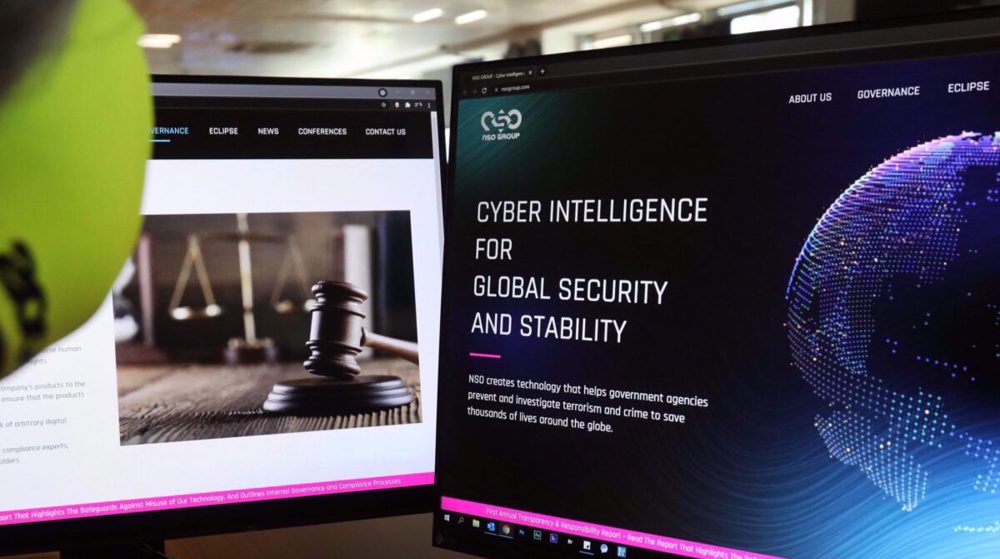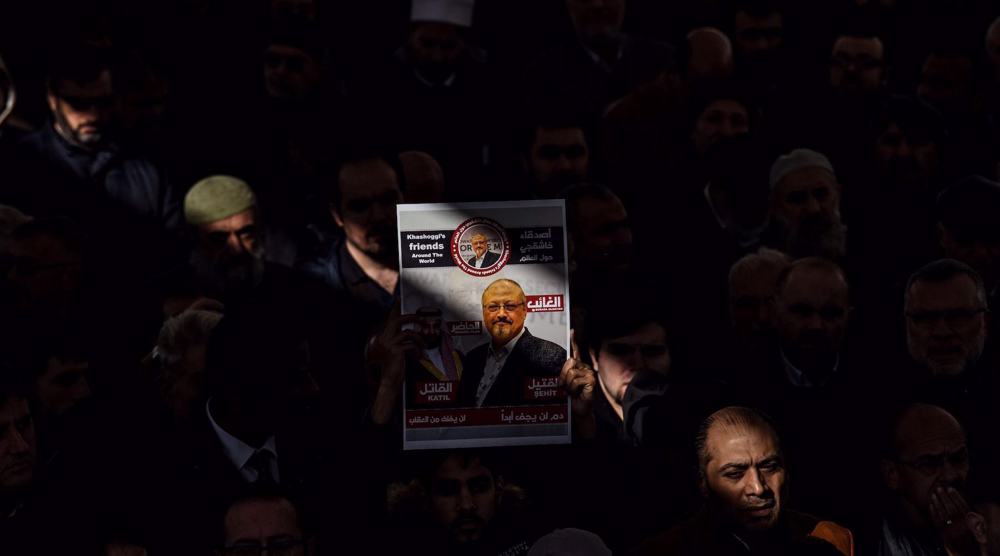MBS allowed Israeli flights to use Saudi airspace in exchange for access to Pegasus spyware: NYT
Saudi Crown Prince Mohammed bin Salman is revealed to have allowed the Israeli flights to use the kingdom’s airspace in order to gain Tel Aviv’s satisfaction to renew Riyadh’s license to use the NSO’s notorious Pegasus spyware.
On Friday, the New York Times said that a year-long investigation showed that the Israeli regime had reaped diplomatic gains around the world from the Pegasus spyware.
Tel Aviv approved the sale of Pegasus to Saudi Arabia, in particular to a Saudi security agency under the supervision of bin Salman, in 2017.
But a year later, the NSO shut off the Pegasus system in Saudi Arabia upon a request from an ethics committee, made up of a bipartisan cast of former US foreign-policy officials, after reports revealed that the malware had helped Riyadh spy on the dissident journalist Jamal Khashoggi who was killed and dismembered in Saudi Arabia's consulate in Istanbul in 2018.
The NYT said the Israeli firm agreed to turn the Pegasus system in Saudi Arabia back on in early 2019, as then Israeli prime minister Benjamin Netanyahu was in the middle of negotiating normalization agreements with several Arab states.
Netanyahu signed normalization agreements with Emirati Foreign Minister Sheikh Abdullah bin Zayed Al Nahyan and Bahrain’s Foreign Minister Abdullatif Al Zayani during an official ceremony hosted by then US president Donald Trump at the White House on September 15, 2020.
The NYT said the Israeli ministry of military affairs declined to renew the Saudi export license when it expired late in 2020.
Without the license, NSO could not provide routine maintenance on the software, and the systems were crashing.
The report said the crown prince phoned Netanyahu in person, after numerous calls between his aides, NSO executives, the Mossad and the Israeli ministry of military affairs failed to resolve the issue.
Following the phone call, the report said, Netanyahu’s office immediately ordered the ministry of military affairs to have the problem fixed, and the Saudi systems were switched back on.
According to the report, MBS, in return, opened the Saudi airspace, for the first time ever, for all flights to and from Israel, and allowed for a crucial part of the normalization agreement to move forward.
Smartphones infected with Pegasus can be turned to a listening device. In addition, the spyware allows the user to read the target's messages, look through their photos, track their location and even turn on their camera without them knowing.
Last November, the US Department of Commerce blacklisted the Israeli surveillance company, which has so far exported Pegasus to 45 countries around the world.
VIDEO | Press TV's news headlines
VIDEO | Iran honors top Science Olympiad medalists
VIDEO | Austrians arrested at Gaza protest in Vienna
10 killed in bus crash in western Iran
VIDEO | One-man-band journalism with Civili
5 Israeli forces killed as Palestinian fighters face up to regime’s war machine
VIDEO | An insider's view of the country: Persian Tahini, Royan in Mazandaran
VIDEO | Israeli settler killed during strike against Tel Aviv; fresh aggression targets Yemen’s capital











 This makes it easy to access the Press TV website
This makes it easy to access the Press TV website